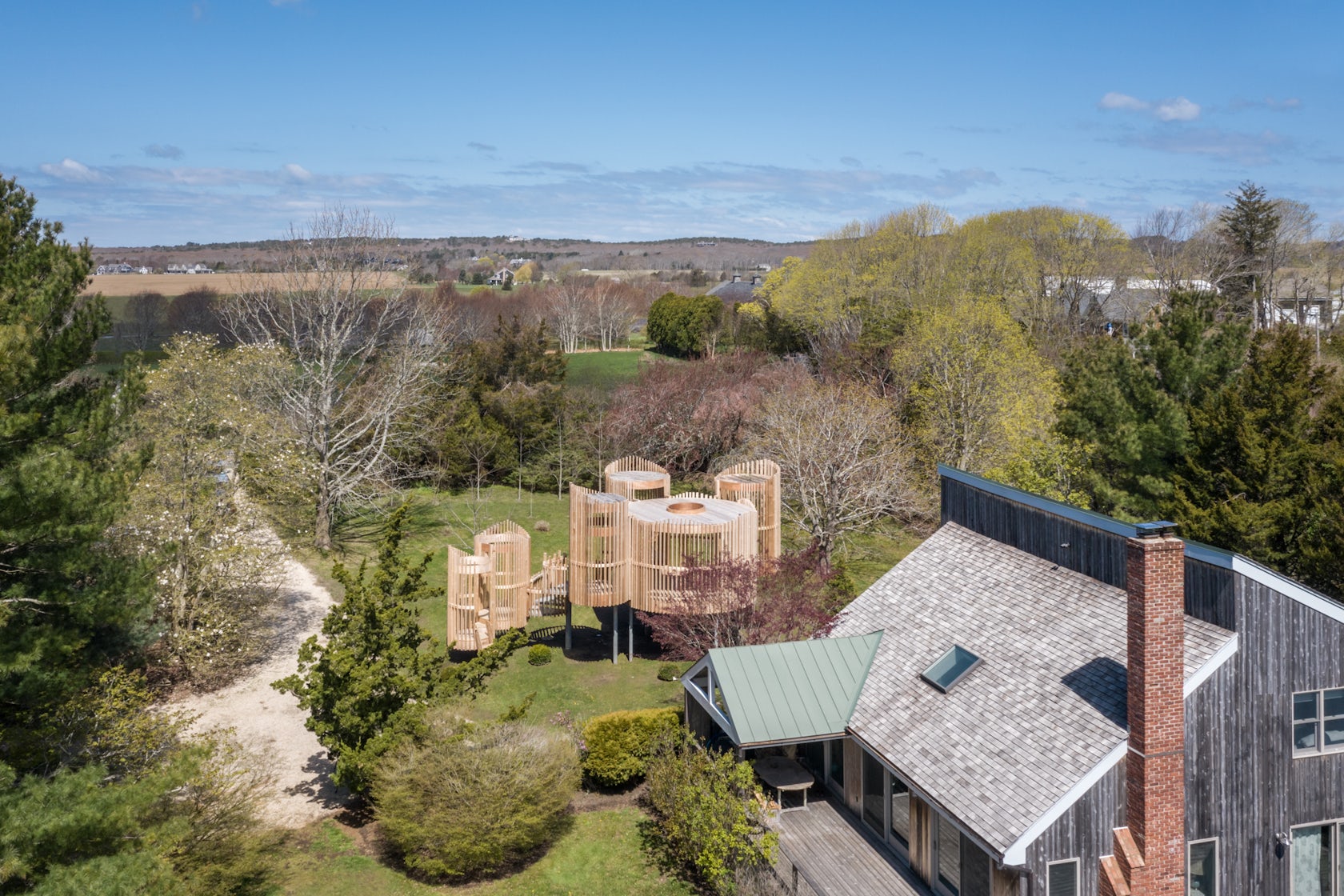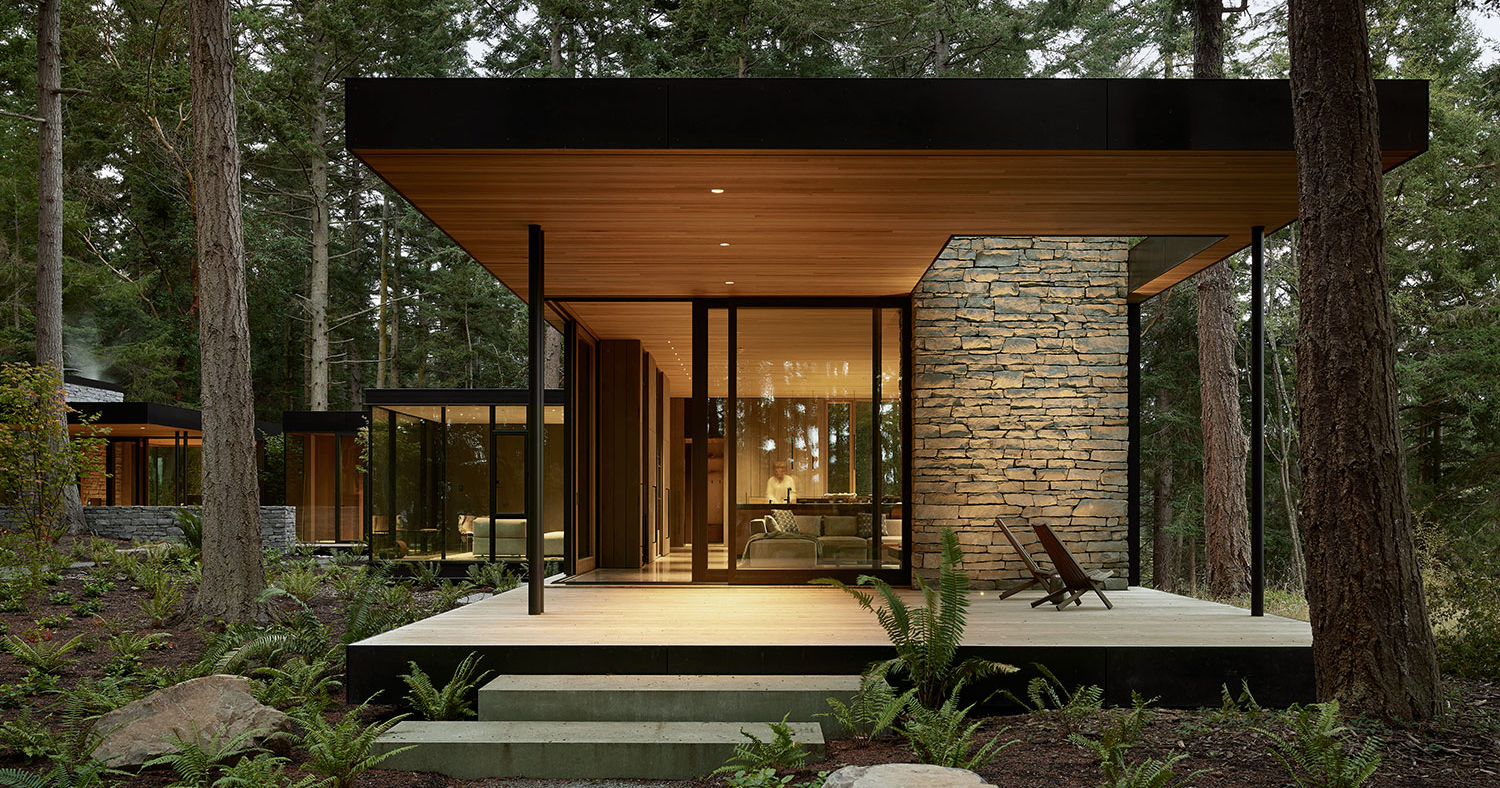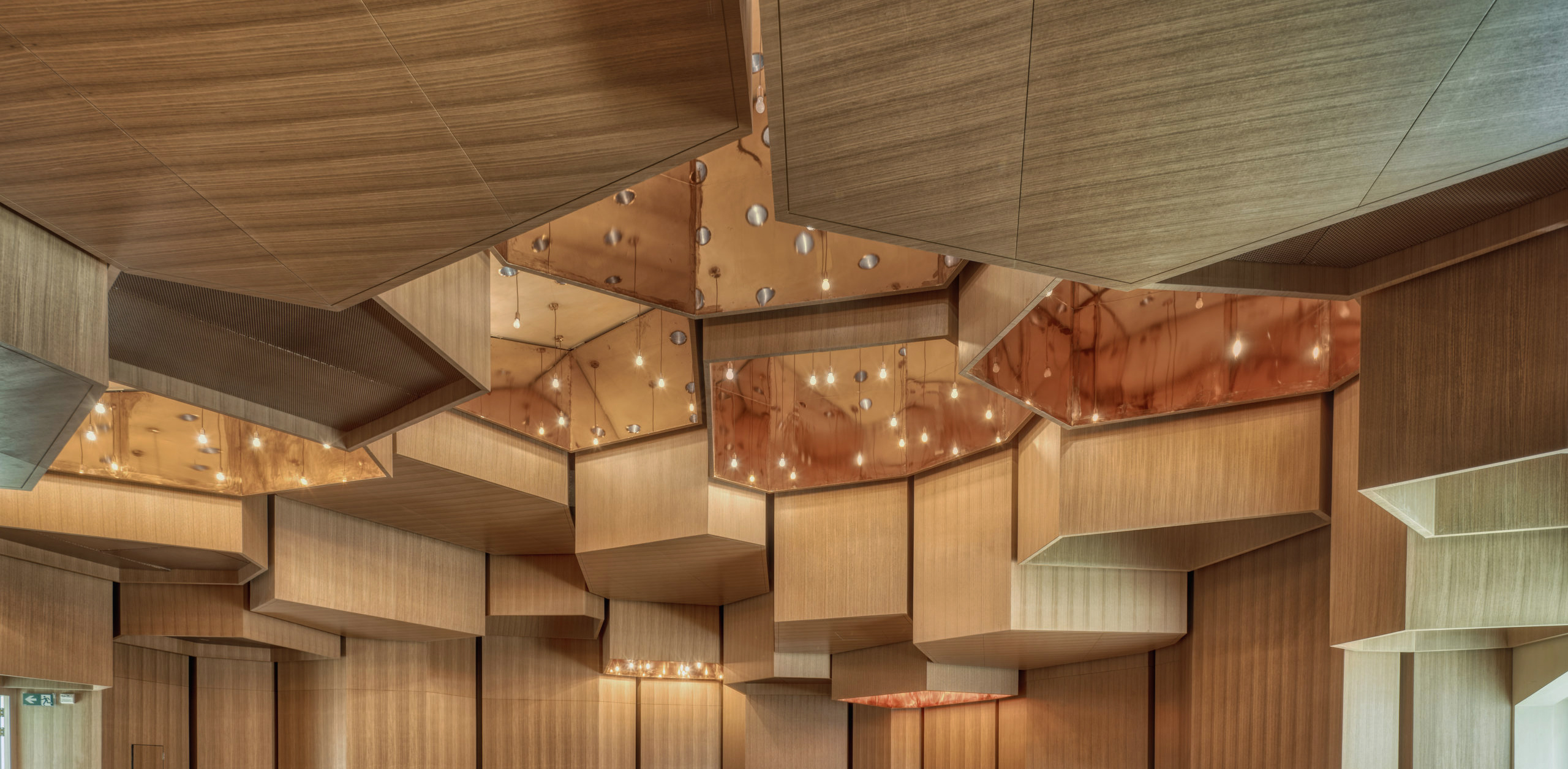Outside-in pavilion – this project in Watermill, NY was designed for a family to gather more in nature within the grounds of their country cabin. Designed just months before the onslaught of the pandemic, it became a great outdoor space not only for recreation but for isolated work and quiet contemplation. It enables an immersive multi-sensory experience in nature.
Architizer chatted with Valerie Schweitzer from Valerie Schweitzer Architects to learn more about this project.
Architizer: What inspired the initial concept for your design?
Valerie Schweitzer: The shapes of silos in the surrounding potato farms of Watermill.

© Josh Goetz
This project won in the 10th Annual A+Awards! What do you believe are the standout components that made your project win?
I think drawing attention to the fragility of the earth with the ghostly forms and shadows helped.

© Josh Goetz
What was the greatest design challenge you faced during the project, and how did you navigate it?
In collaboration with the client we wanted to reduce waste and be as sensitive as possible to the earth with this outdoor pavilion. One way was to incorporate the leftover cut pieces from sizing the vertical studs to make them more sturdy. We also used salvaged cedar in the roof of many of the pods.

© Blaine Davis
How did the context of your project — environmental, social or cultural — influence your design?
Farmers are the unsung heroes of this fancy enclave. Although for a private client, we all wanted to give a nod of respect to working farms through the silo-like forms.

© Valerie Schweitzer Architects (VSA)
What drove the selection of materials used in the project?
Well, cedar was a natural choice to endure the elements. We did require steel outriggers and columns to give adequate support. Together a suspended feeling is created and the look of a simulated forest. We aimed for the playful, reminiscent of a childhood hideaway.

© Valerie Schweitzer Architects (VSA)
What is your favorite detail in the project and why?
My favorite came as a surprise. This happens I think a fair amount for architects. It was the creation of a series of oculi that frame the changing foliage from day into night and seasonally. They can be seen together from certain angles looking upward from the ground.

© Valerie Schweitzer Architects (VSA)
In what ways did you collaborate with others, and were there any team members or skills that were essential in bringing this Award winning project to life?
The carpenter, Christian Hincapie, helped a lot. He understood the nature of cedar wood in ways that allowed us to exploit its wonderful features and beauty.

© Valerie Schweitzer Architects (VSA)
What key lesson did you learn in the process of conceiving the project?
That its ok to dare for poetry, as long as you stay grounded in reason.

© Valerie Schweitzer Architects (VSA)
Is there anything else important you’d like to share about this project?
I think a pavilion is a special typology that lends itself to experimentation since the functional requirements are minimal. I hope VSA will have more such opportunities to try to draw out the magic of a simple frontyard.

© Valerie Schweitzer Architects (VSA)

© Valerie Schweitzer Architects (VSA)
Materials
Cedar. Salvaged cedar. Steel.
For more on Outside-in pavilion, please visit the in-depth project page on Architizer.











 Outside-in pavilion
Outside-in pavilion 


